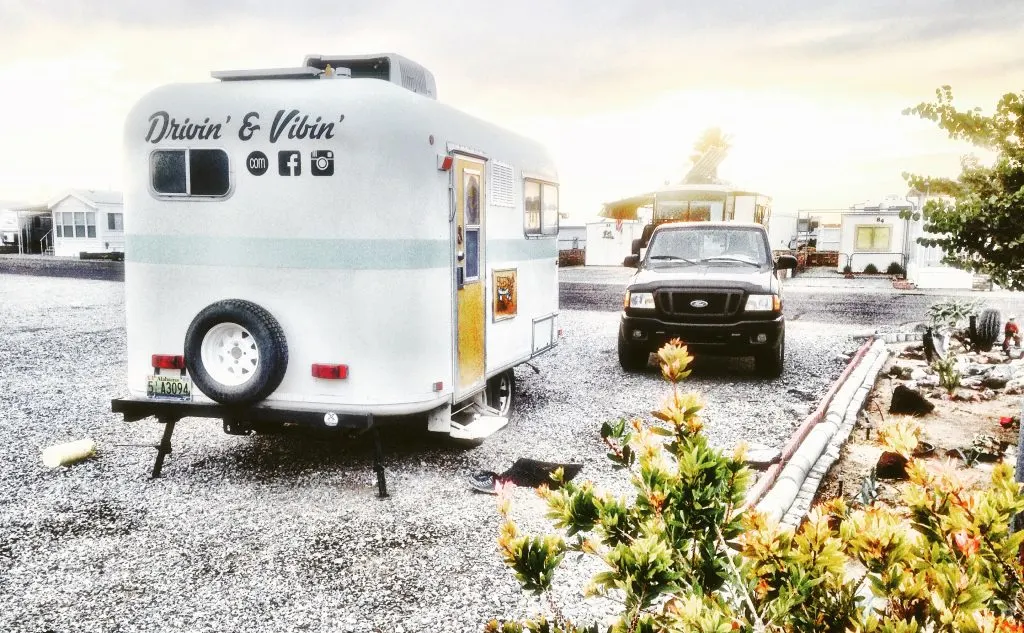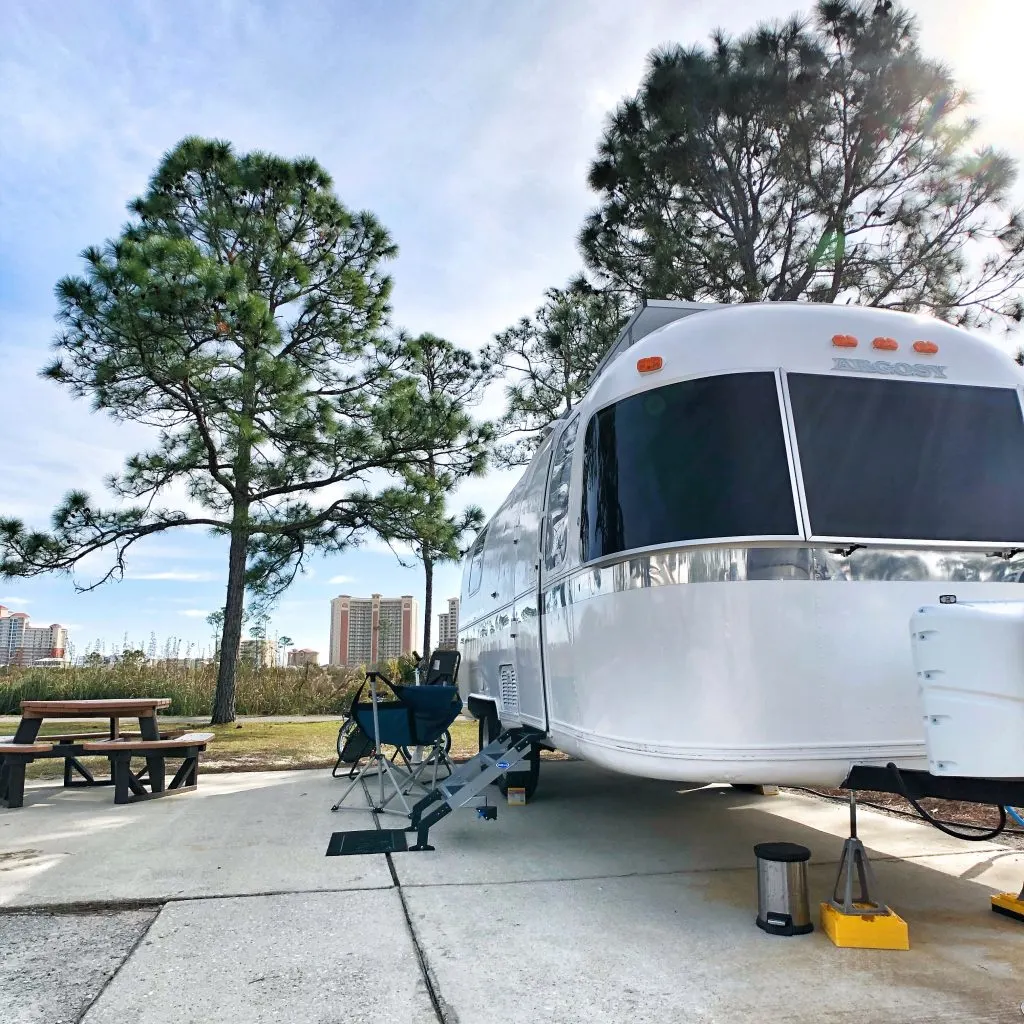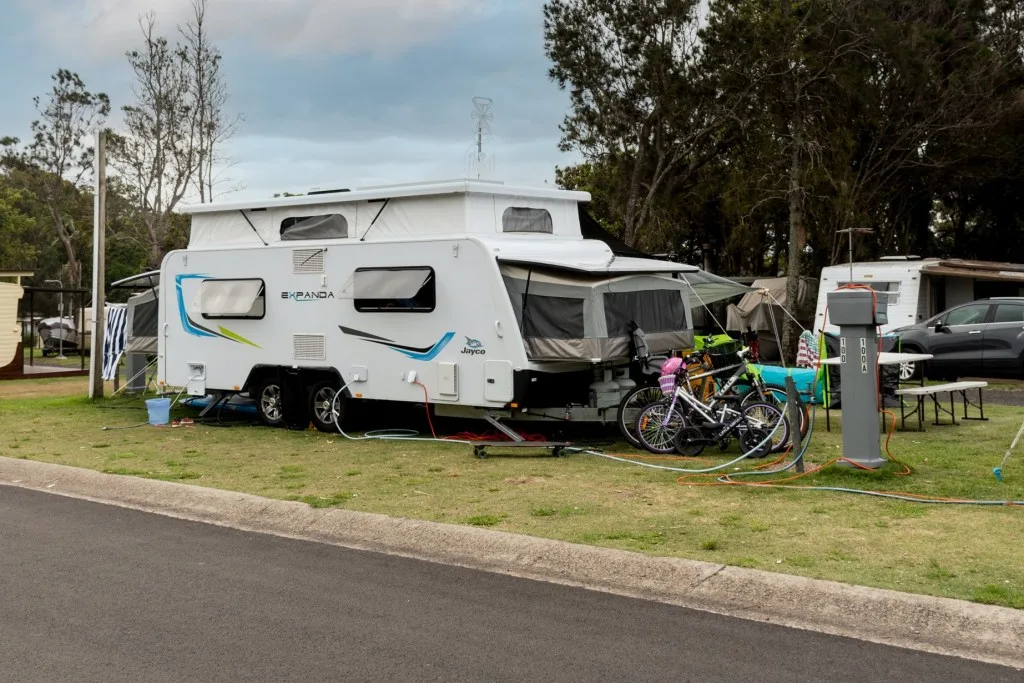Regular travelers know that not all RV park sins are created equal. While some are on accident, there’s something sneaky going on with others.
Sometimes, these crazy scams can turn your adventure into a nightmare. To avoid disappointment, knowing what to look for is essential.
Today, we’re revealing the most common sins committed by RV park owners.
Let’s cross to the dark side!

Reasonable RV Park Rules
Almost every RV park you visit has a list of rules. The length and details will vary significantly based on the location. And a privately owned establishment can make policies as they see fit.
Typically, management creates these guidelines to maintain safety, cleanliness, and order. They’re a way of ensuring everyone can have a great experience during their stay.
Additionally, many owners enforce regulations to reduce their risk of liability. Ultimately, it’s their responsibility to provide a safe and secure environment. Failing to do so can open them up to lawsuits, especially if someone gets injured or worse.
Most of them are reasonable and, frankly, common sense. We understand things like keeping dogs on a leash, observing quiet hours, and not walking through empty campsites.
However, some can be extreme, creating an uncomfortable and uninviting atmosphere.
Seven RV Park Sins
Staying in an RV park that commits sins is frustrating and exhausting. Even though you want to follow the rules, sometimes you end up running in circles. We’ve found several shady practices from campgrounds across the country you should avoid.
#1 Charging Additional Fees for Amenities
One of the annoying RV park sins campers deal with is unlisted fees for amenities. You may choose to stay at a spot based on the website boasting mini golf, a swimming pool, or other exciting features. In this case, what they fail to share is that these items come with an extra cost.
However, the additional fees can continue. We’ve even seen charges for kids and pets. A family with two kids and a pet might pay $15 or more per night.
The additional expenses can feel like they’re trying to squeeze every penny possible out of guests. If you don’t come expecting them, you’ll probably leave with a lighter wallet and a sense of outrage.

#2 Website Pictures Misrepresents the Facility
The internet makes it easy to research and find new places to camp. Unfortunately, some unscrupulous owners misrepresent their property. Sometimes, what you see online differs from what you discover when you arrive.
Businesses frequently use stock or old images that paint an inaccurate picture of the current conditions of the campground. Sadly, committing the sin of the bait-and-switch at the RV park isn’t uncommon.
One of the best ways to avoid this is to check unbiased resources, such as reviews on Google or Campendium. Users post pictures and details of their experiences. These reviews can help you better understand what you’re getting into before making a reservation.
PRO TIP: The Difference Between a Campground, RV Park, and RV Resort.
#3 Calling the Park a Resort
The next of the sins an RV park might commit is calling itself a resort when it’s not. Unfortunately, there’s no standard answer for what defines a resort. Some owners take advantage of that and are more generous with the term.
Typically, consumers expect an RV resort to have more luxuries and amenities. Sites are frequently larger and provide full hookups. It’s also common for them to offer cable services and access to the internet.
While not required, swimming pools, tennis courts, pickleball, and other activities are often standard.
On the other hand, a campground has a very different atmosphere. Rig pads are usually closer together and less fancy. They may even allow individuals to stay full-time, creating an unpleasant atmosphere if left unchecked.

#4 Guest Age and Pet Restrictions not Stated Up Front
Traveling with children and pets can be fun, but not if the campground has rules prohibiting them. Knowing this in advance is essential. These establishments cater to a specific demographic. Typically, these require at least one guest to be 55+ or everyone in your party older than 18.
With pets, breed restrictions are standard about everywhere. However, we’ve seen locations that do not allow certain types of animals, including cats. The staff can ask you to leave, even if your feline friend doesn’t exit the camper.
This behavior made our list of RV park sins because these restrictions often aren’t stated upfront. These are significant regulations that impact a large portion of the community. You shouldn’t have to dig through a website to find this information. Or worse, discover upon arrival that you can’t stay.
REVEALED: We Snuck Into a 55+ RV Park, Here’s What We Learned
#5 Guests Must Wear Name Tags
Another of our unbelievable sins of RV parks is forcing guests to wear name tags. Believe it or not, we’ve heard of locations requiring everyone to don badges during their stay. Many do this to build community and to help campers identify each other.
While we are usually okay with getting to know our neighbors, that’s not the main reason we go camping. Usually, we want to spend time in nature and make memories together as a family.
Worrying about wearing a name tag gets old quickly and could ruin the trip.

#6 Charging for Weak WiFi
On more than one occasion, we’ve found ourselves in a spot that advertised access to high-speed WiFi. When we went to connect and get some work done, we were surprised to see a request for our credit card information.
Nothing’s more frustrating than hidden fees. We don’t mind paying for amenities, but knowing beforehand would have been nice.
Additionally, we’ve found some of these connections to be weak and spotty. So, we’re not only charged for access to the internet, but it was barely usable.
These connections often allow for checking and sending emails, but that’s about it.
#7 Poor Placement of Rocks and Site Posts
The final item on our list of RV park sins deals with rocks and guideposts. Sometimes, it feels like whoever designed the roads had never driven an RV in their life.
Guiding your rig into a site requires complete awareness of the situation. You could damage your vehicle or the campground’s property if turns are too tight or visibility is bad. Owners put things like posts and rocks out to help keep you on the straight and narrow. But some of them are just in the way.
Take your time and be mindful of things when navigating tight areas.

Don’t Let These RV Park Sins Your Adventure
Unfortunately, you’ll never find a human or RV park without sins. That’s because there’s no such thing as a perfect campground. However, it’s possible to have a great time by extending grace when they fall short of expectations. To set you up for success, check reviews and call the park beforehand.
Sometimes, they’re just too busy enjoying life to update their website.
Discover the Best Free Camping Across the USA
To be honest with you, we hate paying for camping. There are so many free campsites in America (with complete privacy).
You should give it a try!
As a matter of fact, these free campsites are yours. Every time you pay federal taxes, you’re contributing to these lands.
Become a FREE CAMPING INSIDER and join the 100,000 campers who love to score the best site!
We’ll send you the 50 Best Free Campsites in the USA (one per state). Access the list by submitting your email below: